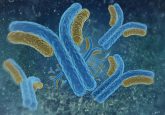MacroGenics and Gilead Sciences to form new antibody alliance
Recent collaboration in the development of a DART™ technology, a bi-specific antibody platform.
Two privately held biotechnology companies – MacroGenics Inc (MD, USA) and Gilead Science (CA, USA) – have entered into a licence agreement for the development of dual-affinity retargeting (DART™) products. MacroGenics hope that the partnership with Gilead could bring a potential $1billion profit, as a result of the commercialization of the DART product.
Scott Koening, president and Chief Executive Officer of MacroGenics commented on the partnership, “As the fourth major collaboration around our DART platform in the past two years, this deal represents the latest validation of our ongoing efforts.” The DART technology is a bi-specific antibody platform in which a single-recombinant antibody can simultaneously target two different antigens. Through the incorporation of multiple specifities within a single molecule, almost any variable region sequence can be efficiently accommodated. DART technology is highly potent, easily manufactured and tunable by disease area, due to the ability to reduce or extend antibody serum half-life. MacroGenics have engineered over 100 DART proteins, some of which have the capacity to re-direct destructive immune effector cells against T cells.
MacroGenics approximate that an investigational new drug application will be submitted for the product, which can be directed at up to four undisclosed targets, later this year. Research activities for all four programs will be funded by Gilead, three of which they will have exclusive rights to. Gilead is expected to spend an additional $85 million in pre-clinical milestone payments and $30 million in license fees. According to Roy D. Baynes, Senior Vice President, Oncology and Inflammation Therapeutics at Gilead,“This partnership underscores Gilead’s commitment to developing innovative therapies that address significant unmet medical needs for patients with cancer and other life-threatening diseases.”






